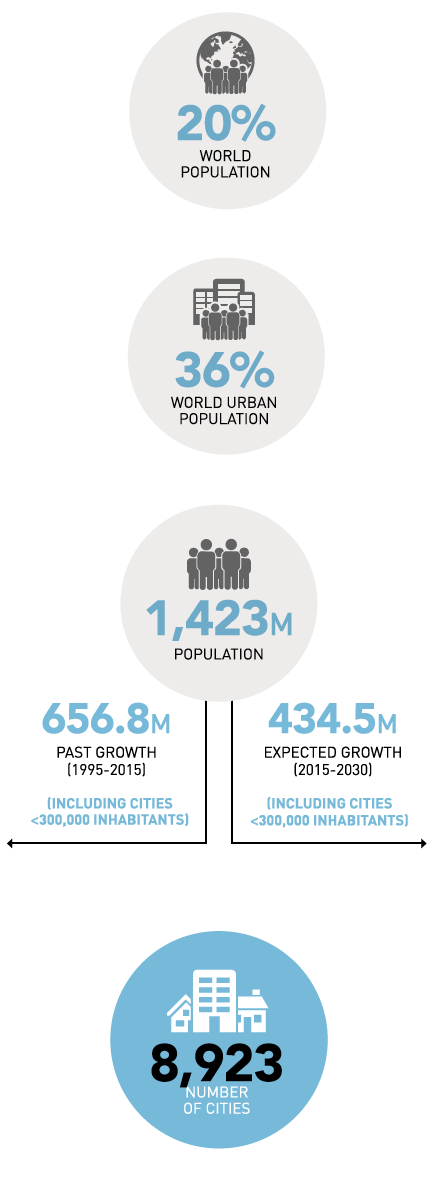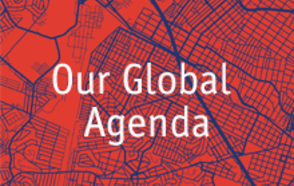The vital nexus between the local and the global
Intermediary cities (i-cities) are cities with a population between 50.000 and one million people that generally play a primary role in connecting important rural and urban areas to basic facilities and services. 
Intermediary cities are home to 20% of the world´s population and one third of the total urban population.
Because of their scale, intermediary cities can guarantee and provide basic housing needs to their citizenship more efficiently and cheaply than metropolitan areas.
Their crucial role in the achievement of an “inclusive, safe and resilient” urbanism, (Goal 11 of the SDGs), and in the development of more balanced and sustainable urban systems, means that intermediary cities need to become more prominent in the New Urban Agenda and its implementation.
Agenda for intermediary cities - key messages
 Acknowledge the contribution of intermediary cities to the realization of the Agenda 2030 and the New Urban Agenda
Acknowledge the contribution of intermediary cities to the realization of the Agenda 2030 and the New Urban Agenda
 Redefine national urban policies to support intermediary citiesin fostering balanced and inclusive urban and territorial development
Redefine national urban policies to support intermediary citiesin fostering balanced and inclusive urban and territorial development
 Unlock intermediary cities´potential to take on fully their responsibility for urban management and development, thought a fair distribution of powers, finances and capacities
Unlock intermediary cities´potential to take on fully their responsibility for urban management and development, thought a fair distribution of powers, finances and capacities
 Capitalize on the proximity and human scale of intermediary cities by strengthening urban planning capacities and land management to prevent urban sprawl and reduce the urban footprint
Capitalize on the proximity and human scale of intermediary cities by strengthening urban planning capacities and land management to prevent urban sprawl and reduce the urban footprint
 Raise the national profile of intermediary cities by branding and promoting themselves as centres of innovation, intermediation, service provition, cultural heritage and prosperity
Raise the national profile of intermediary cities by branding and promoting themselves as centres of innovation, intermediation, service provition, cultural heritage and prosperity
 Fostering national development by encouraging closer cooperation between intermediary cities and their rural hinterlands, as well as inter-municipal partnerships
Fostering national development by encouraging closer cooperation between intermediary cities and their rural hinterlands, as well as inter-municipal partnerships
 Develop ambitious local economic policies to créate new opportunities and overcome global and national economic challenges
Develop ambitious local economic policies to créate new opportunities and overcome global and national economic challenges
 Tackle global inequalities by developing social policies that ensure affordable Access to basic services, health and education
Tackle global inequalities by developing social policies that ensure affordable Access to basic services, health and education
 Reduce the urban environmental footprint to fight environmental degradation, climate change, and the threat of natural disasters
Reduce the urban environmental footprint to fight environmental degradation, climate change, and the threat of natural disasters
 Ensure access and participation in culture and cultural life for all
Ensure access and participation in culture and cultural life for all
 Adopt the Right to the City
Adopt the Right to the City















